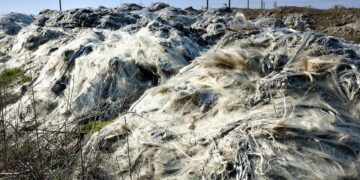Unveiling the Truth: Essential Global Warming Facts for Students
Global warming represents one of the most pressing challenges in the modern world, affecting every country on the planet. As students, understanding the intricacies of global warming is crucial not only for academic purposes but also for making informed decisions in daily life. This detailed guide presents essential facts, addresses common questions, and helps clarify common misconceptions about global warming.
What is Global Warming?
Global warming refers to the long-term increase in Earth’s average surface temperature due to human activities, primarily fossil fuel burning, which releases carbon dioxide and other greenhouse gases into the atmosphere. The enhanced greenhouse effect caused by the increase of gases such as carbon dioxide, methane, and nitrous oxide is leading to an increase in the Earth’s temperature, resulting in various climatic shifts and impacts.
Key Evidence of Global Warming
The evidence for rapid global warming is compelling:
- Rising Temperatures: Data from surface-temperature measurements and climate indicators show that the Earth’s average temperature has risen significantly over the past century.
- Shrinking Ice Sheets: Significant reductions in the mass of the Greenland and Antarctic ice sheets have been observed.
- Glacial Retreat: Glaciers worldwide, including in the Himalayas, Andes, Rockies, Alaska, and Africa, are retreating.
- Sea Level Rise: Global sea levels rose about 8 inches in the last century. The rate has doubled in the last two decades, as per the latest reports.
- Extremes in Weather: The number of record-high temperature events is increasing in the United States and globally.
The Causes of Global Warming
The primary cause of global warming is the greenhouse effect. While naturally occurring to some extent, its significant intensification through human activities is what leads to global warming. Sources include:
- Industrial Activity: Industries emit vast amounts of greenhouse gases through fossil fuel combustion, handling of chemical products, and deforestation.
- Agricultural Practices: Activities such as rice cultivation, cattle rearing (which produces methane), and deforestation for farming contribute to the enhanced greenhouse effect.
- Waste Management: Decomposition of organic waste in landfills produces methane, adding to the greenhouse gases.
Impacts of Global Warming
The consequences of global warming are both far-reaching and diverse, affecting the environment, human life, and the economy:
- Natural Disasters: More intense and frequent hurricanes, floods, and droughts are likely as the planet warms.
- Wildlife: Species are becoming extinct at a faster rate due to habitat destruction, temperature shifts, and the changing landscapes.
- Health Risks: Increased periods of intense heat could lead to more heat-related illnesses and fatalities. Changes in climate also alter the distribution of infectious diseases like malaria.
Global Responses to Combat Global Warming
To mitigate global warming, international cooperation is crucial. Initiatives like the Paris Agreement aim to bring countries together to commit to lowering their carbon emissions. Renewable energy technology, such as solar and wind, plays a critical role in reducing dependence on fossil fuels. Additionally, reforestation and afforestation can significantly absorb CO2 from the atmosphere.
What Can Students Do?
As a student, your role in combating global warming is vital. Educating yourself and others, advocating sustainable practices, and engaging in local and global conservation initiatives can make a difference. Practices students can adopt include:
- Reducing Waste: Minimizing waste by recycling and composting can significantly lower the amount of landfill waste that emits methane.
- Conserving Energy: Turning off lights, reducing heating and cooling, and using energy-efficient appliances can reduce your carbon footprint.
- Supporting Sustainable Practices: Whether it’s through buying products from companies that are environmentally responsible or supporting policies that protect the environment, every action counts.
Conclusion: A Call for Awareness and Action
Global warming is not just an environmental issue but a multifaceted threat that demands a global response. By staying informed, educated, and proactive, students can play a significant role in making a difference. The future depends on the actions we take today to ensure a sustainable globe for generations to come.
With the right knowledge and actions, students can help lead the way in securing a cooler, more sustainable world. Unveiling these truths about global warming isn’t just about understanding the problem but also about implementing solutions that will curb its impact.
Remember, change begins with education, and knowledge is the key to change.











